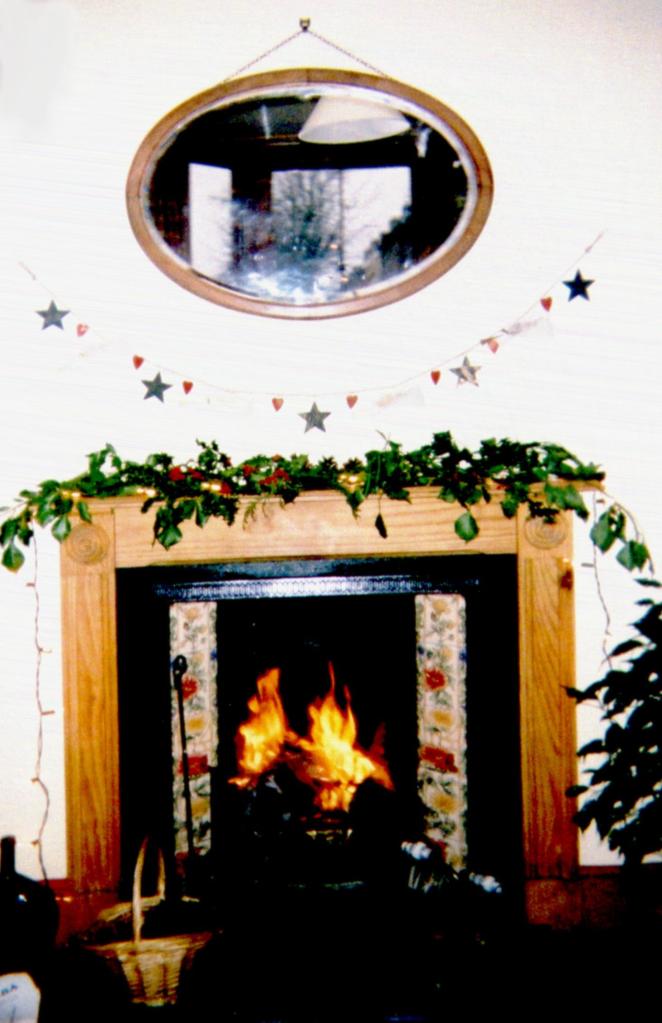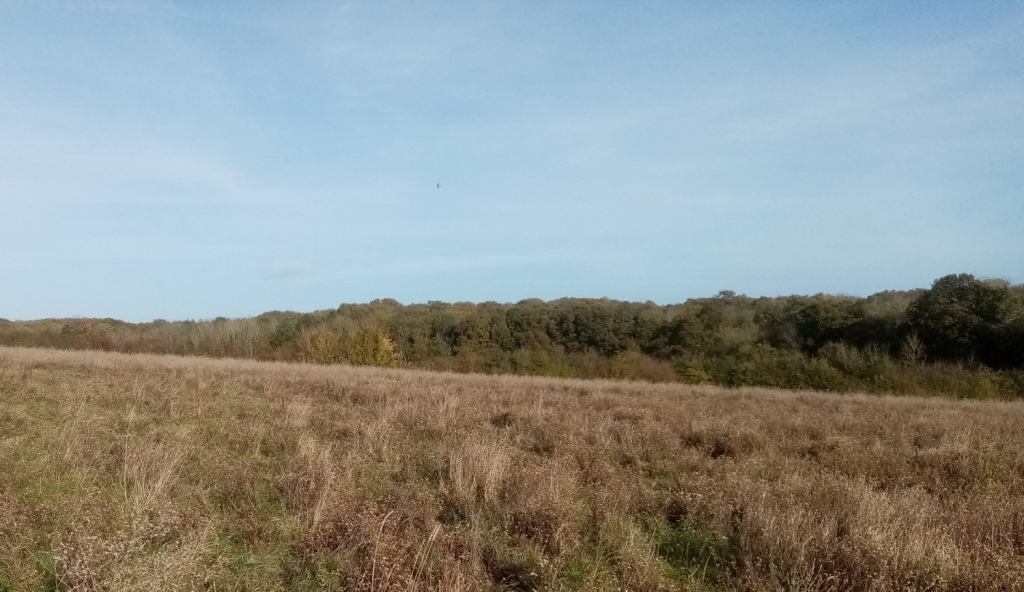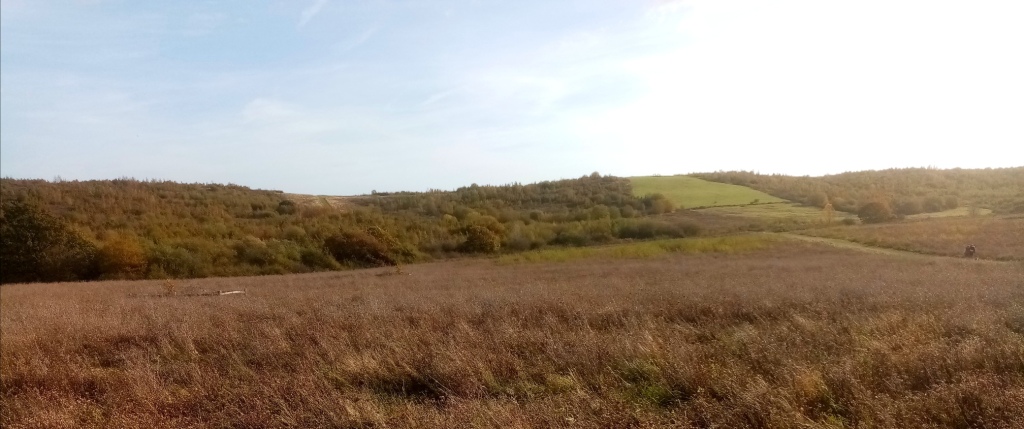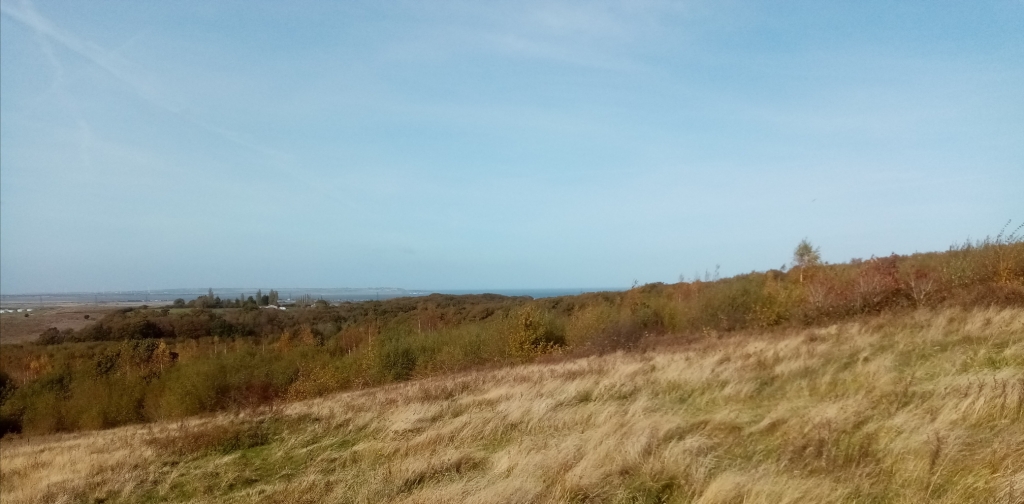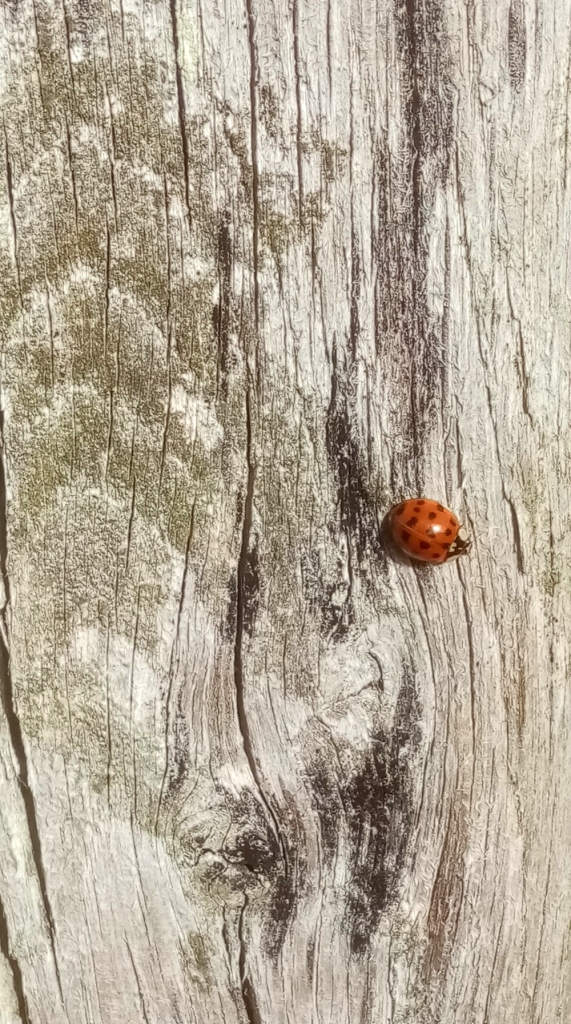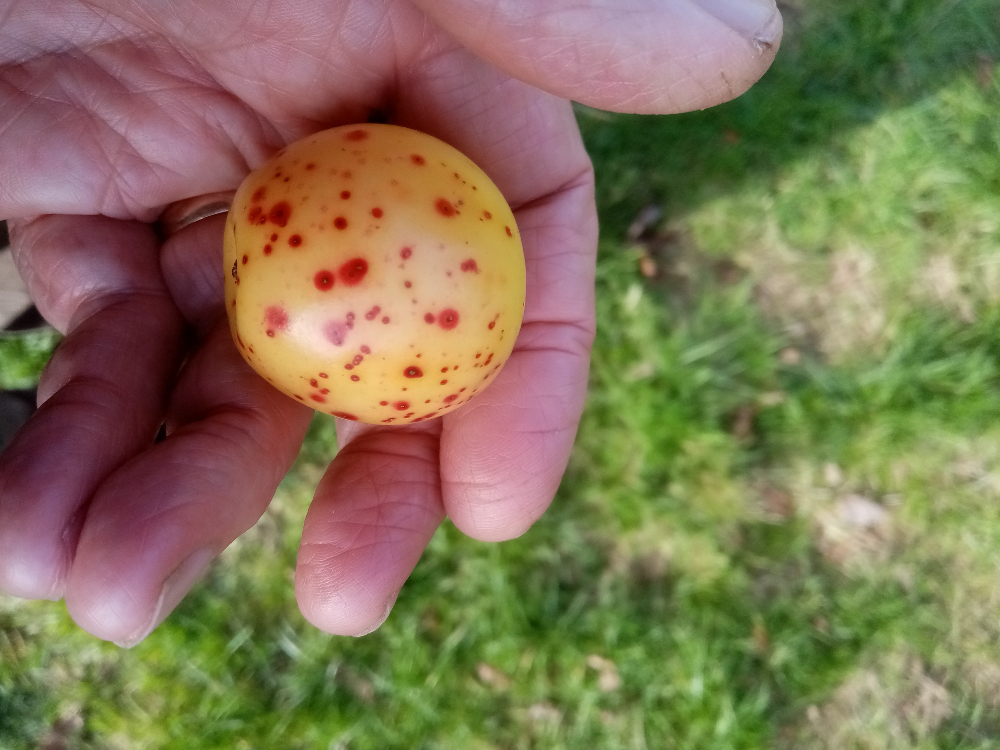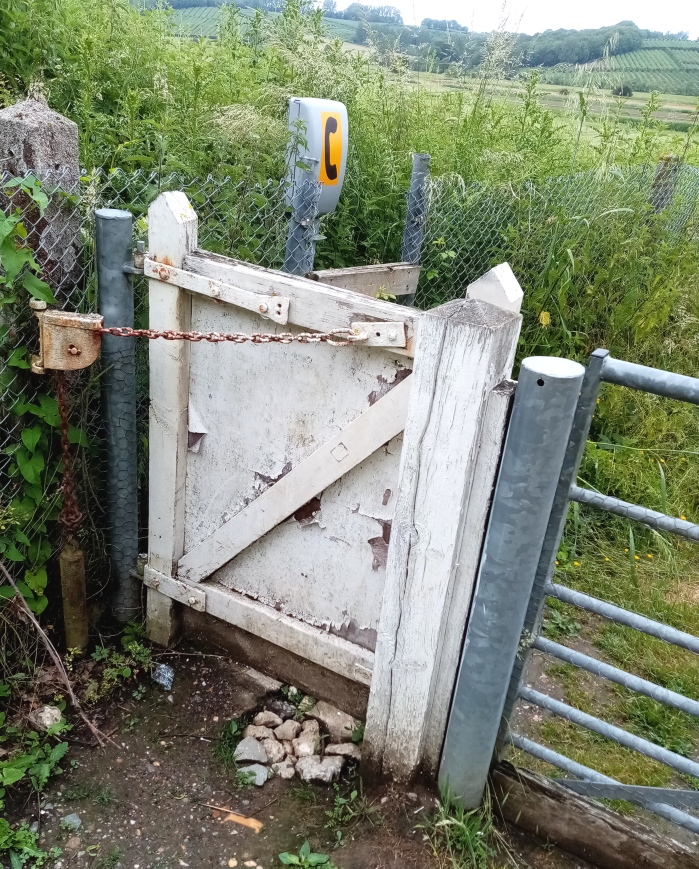
We came across this gate while walking in Sussex. When we got home I saw that there were a few stories to be heard – or seen – here.
This is where a track crosses the railway, or better, the other way about, because the track was there well before the railway was built. There was a station here, though few passengers. The station had a wooden platform, wooden shelter and no lighting, oil, gas or electric. Not surprisingly. there is little to be seen of the station, nor of the crossing keeper’s cottage.
The footpath is on the Brede Level marshland. It must get very muddy, so someone has added cobbles to make the foot crossing dry. The crossing keeper would surely have kept the gates open to trains, closed to road vehicles, so the position was something of a sinecure, or a job for an elderly worker still strong enough to manage the heavy gates. There were fewer road vehicles than trains. A lightweight farm gate either side of the track is all that’s needed.
The old pedestrian gate is a picture; I guess it’s XIX Century. Its new galvanised post suggests that a surveyor did not want to scrap this unique specimen – the one on the opposite side is quite different, but both were clearly handmade by carpenter and blacksmith, probably in the South Eastern Railway works at Ashford. No question of an off-the-peg gate here. Note the decorative work on the top hinge, and the swivelling pulley cover to keep fingers safe; its makers took pride in their work. The gate frame will have been made of hardwood, possibly English oak, and when the upright palings had perished a sheet of marine plywood was substituted. Railwaymen seem to have had a soft spot for this gate over the last 150 years or so.
Modern technology is represented by the telephone: drivers of slow moving vehicles are warned to call the signaller for the all clear before crossing the railway. We arrived here by foot downhill from Udimore where King Edward III once stayed. He was supervising defensive fortifications at nearby Winchelsea in 1350 when the Spanish fleet came into sight and gave battle, ending in an English victory, witnessed by Queen Phillipa from the top of the track we are following.
Since then a naval safe haven has become a saltmarsh, supporting sheep beside the river; and the sea is now some distance away.
In the distance across the marsh is a hill with a village and pub, a destination for our walk. A shared walk, a shared meal; reminders of why we chose to share all things, for better or worse, forty-three years ago.


